Racism is a public health crisis (1,2,3). The COVID-19 pandemic has spotlighted racial disparities. In Canada, the highest proportions of deaths due to COVID-19 existed in neighborhoods with higher proportions of visible minorities (34.5 deaths per 100,000 in neighborhoods where >25% are visible minorities, in comparison to 16.9 deaths per 100,000 in neighborhoods where <1% were visible minorities) (4). In the midst of the COVID-19 crisis, antiracism was the compelling narrative, sparked by anti-Black Racism demonstrated by the worldwide protests following the US murders of George Floyd and Breonna Taylor (5, 6), then Indigenous-specific racism demonstrated by the death of Joyce Echaquan and the uncovering of over 1000 unmarked graves near Canadian residential schools (7, 8); followed by anti-Asian racism demonstrated by the murder of six Asian women in Atlanta, Georgia (9) to name a few. Focusing on anti-Asian racism, as of October 2021, over 1122 incidents have been reported in Canada since the start of the COVID-19 pandemic (10). Past and present-day racism affects different racial and ethnic groups in unique ways; leveraging our lived experiences, we focus on anti-Asian racism: its history, current forms, particular relevance to medicine and initial steps our collaborative hopes to take. The aim of this piece is to highlight the unique manifestations of anti-Asian racism and the heterogeneous nature of Asian peoples’ experiences in Canada based on intersectionality. These experiences manifest in healthcare and health professions education and therefore should be recognized and addressed.
There is a history of anti-Asian racism across North America. In 1875, the Page Act systematically prevented Chinese women from immigrating to the US, under the pretense that Chinese women were a threat as promiscuous prostitutes (11). In 1885, the Chinese Head Tax and Chinese Exclusion Act prevented further immigration of Chinese immigrants into Canada after the government brought 17,000 Chinese laborers to Canada to construct the Canadian Pacific Railway (12). During the Second World War, the Canadian government detained and dispossessed Japanese Canadians into internment camps under the War Measures Act (13).
This historical racism parallels the anti-Asian racism that exists today. For example, the sexualized stereotype of Asian women has persisted in our society as Asian women are viewed as hypersexual, exotic, submissive, and docile (14). This fetishization results in dehumanization of Asian women who continue to be viewed as lesser human beings and often as sexual objects: the shooter who murdered six Asian women in Atlanta stated that spas were a “temptation he wanted to eliminate” (15). In addition, Asian hate has been exacerbated due to the origins of the COVID-19 virus in Wuhan, China; misplaced blame has been placed on Asians for starting the pandemic. Asians across Canada have been targeted due to their race and told to “go back to China” (16). Across the US, Asian elders have been physically assaulted (17). This scenario is history repeating itself with echoes of “Yellow Peril” which was the fear that Asians, particularly Chinese immigrants coming to North America, would ‘invade Western lands and disrupt Western values’ (18, 19).
Racism exists for many reasons, including that eurocentricity is the norm, creating a constant feeling of “otherness” for Black, Indigenous and Peoples of Colour (BIPOC) and other oppressed groups. For Asians in particular, “The Model Minority” myth focuses on the stereotypes that all Asians are hard working, rule-abiding, independent, intelligent and economically prosperous (20). This myth hides the fact that anti-Asian racism exists both on the interpersonal and systemic level, and was created to drive a wedge between racialized communities — a way to distract and deny that systemic racism exists. “The Model Minority” myth may provide a degree of privilege to Asians and people who may ‘look’ Asian, that other racialized communities may not benefit from while being disproportionately affected by the impacts of historical and present-day racism, colonialism, and assimilation (21). There is shared responsibility, leveraging privileges to support BIPOC communities, through allyship and respect to tackle shared struggles: white supremacy leading to deeply rooted racism in structures and institutions, and permeating to the individual and interpersonal levels.
While all Asians share in the experiences of anti-Asian racism, precaution must be taken when homogeneously grouping together Asian ethnicities. This issue occurs in all sectors, including medicine and healthcare. Medicine serves as a demonstration of the importance of carefully examining data on equity, diversity, inclusivity, accessibility, and justice as well as having an in-depth, community-centered understanding of the issues. At the macro level, it may seem like there is adequate enrollment of people of Asian descent into medical schools, exceeding the goals of diversifying medical school classes. However, this is actually an overrepresentation of East and South Asians, while South East Asians are grossly under-represented. A 2020 survey of Canadian medical schools found that 156 students out of 1388 identified as Chinese (11.2%) compared to 6.1% of the general population, 122 identified as South Asian (8.8%) compared to 7.0% of the population but only 11 (0.8%) identified as Filipino compared to 2.8% of the population (22). Similarly, in 2012, Young et al showed that out of 1495 Canadian medical students, 5 identified as Filipino (0.3%), 184 as Chinese (12.4%), 175 as South Asian (11.7%), 25 as Korean (1.7%), and 16 as Southeast Asian (1.1%) (23). The grouping of Asians as one monolithic group dilutes the important differences and distinctions that exist between Asian ethnicities and the value that this diversity brings to providing care to diverse communities. The overrepresentation of certain Asian groups and underrepresentation of others has significant implications for policy-making decisions.
Even within professional fields, there is a limit to how far Asian success goes. A 12-year review (1997-2008) of American academic institution leadership and found a disproportionately low number of Asians in senior leadership positions in academic medicine with 0% of deans, 3.52% of chairpersons, and 6.66% of full professors who self-identified as Asian (24). Currently, only two of 17 Canadian medical school deans are BIPOC (South Asian and East Asian). This paucity of Asian representation in medical leadership mirrors the lack of Asian corporate officers, CEOs, and Hollywood leading roles (25, 26). This phenomenon is known as the “bamboo ceiling”. There is a lack of knowledge that the bamboo ceiling exists, reaffirming the “Model Minority” and “Asians as submissive” myths, as once again the needs of Asians in Canada fade into the background of eurocentric norms (27).
Faced with these issues, we engaged as a community of practice to highlight the difficulties faced by Asians, particularly within the field of medicine. At the macro-level, we intend to raise awareness of medicine’s bamboo ceiling, advocate for improvements in race-based data collection, and explore the effects of anti-Asian racism on Asian groups through research. At the micro-level, we will explore the differences that exist within Asian communities and enhance community support and mentorship to address these differences (e.g., one-on-one mentorship conducted by the Filipino Association of Medical Students with Filipino undergraduate students (28)). Through future partnerships, lending our specific expertise, voice, and privilege, and co-creation, we can hopefully move together in the right direction. We plan to act in solidarity with existing groups addressing and implementing anti-oppression and anti-racism policies and practices to ensure that our proposed solutions benefit collective racialized and systematically oppressed groups, not Asians in Canada alone. We invite further collaborators as we break through the bamboo ceiling together as we join in these calls to action:
- Acknowledgement of systemic and interpersonal anti-Asian Racism in Canada.
- Race-based data collection that disaggregates Asian and other racial groups according to groupings listed in the Canadian Census.
- Mentorship for Asian-Canadian trainees in a pipeline structure from leader/faculty to resident physician to medical student to undergraduate student to high-school/grade school student with shared learning.
- Education about anti-Asian racism in medicine and medical education.
- Non-hierarchical and mutually supportive partnership with existing anti-racism organizations and Asian organizations in Canada. Acknowledge expertise within the community, avoid tokenization of groups, amplify existing initiatives, and co-create new innovations.
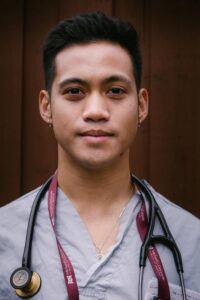
Francis Lao
Francis Lao is a final year medical student at the Michael G. DeGroote School of Medicine at McMaster University. He grew up in North York, Ontario and received his Bachelor of Health Sciences from McMaster University. Since the age of 16, he has conducted research on Kawasaki Disease, a pediatric vasculitis, as a research student at The Hospital for Sick Children (SickKids) in Toronto and McMaster University. He advocates for increased representation of Black, Indigenous and people of color in medicine, ending homelessness, and Filipinx health.
Declaration of Interests: I have read and understood the BMJ Group policy on declaration of interests and declare the following interests: none.
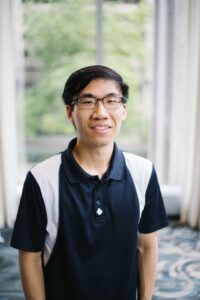
Dr Victor Do
Victor is a second-year pediatrics resident at the University of Toronto. He obtained his medical degree from the University of Alberta in Edmonton. Victor has served in a number of leadership roles including president of the Canadian Federation of Medical students in 2019-2020 and as a board director with the Canadian Medical Association.
Declaration of Interests: I have read and understood the BMJ Group policy on declaration of interests and declare the following interests: none.
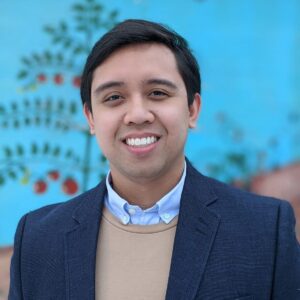
Dr Marck Mercado
Marck is a first-year family medicine resident physician at McMaster Halton. Many of his initiatives center around the breakdown of sociocultural and accessibility barriers in healthcare. His most recent work includes the co-development of MyLingual MD, a free mobile application for bilingual healthcare practitioners to enhance their medical fluency in the shared languages of their patients. As an immigrant from the Philippines, he strives to address the underrepresentation of Filipino-Canadians in medicine by mentoring Filipino students and working with the Filipino Association of Medical Students in Ontario, Canada. He hopes to expand this work by increasing opportunities for minority groups in medicine and celebrating diversity in healthcare.
Declaration of Interests: I have read and understood the BMJ Group policy on declaration of interests and declare the following interests: none.

Gian Agtarap
Gian Agtarap is a fourth-year medical student at the Temerty Faculty of Medicine at the University of Toronto. He grew up in Brampton and received his Bachelor of Health Sciences from McMaster University. In his first year of medical school, he founded the Filipino Association of Medical Students (FAMS) and has been leading the group ever since. He has been heavily involved in the Filipino community since childhood and is passionate about advocating for addressing the under-representation and specific inequities that the Filipino community faces. He has been featured on multiple media outlets to speak on his advocacy work and is currently working on a research project analyzing the under-representation of Filipinos in Canadian medical schools. His hobbies included dancing Filipino cultural dance, which he did with the Fiesta Filipina Dance Troupe for over 12 years, as well as playing basketball/volleyball, multiple musical instruments, and competitive Super Smash Bros.
Declaration of Interests: I have read and understood the BMJ Group policy on declaration of interests and declare the following interests: none.
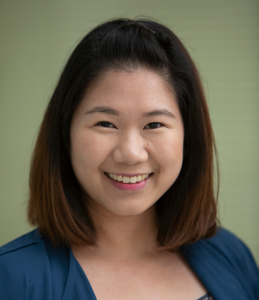
Dr Esther Kim
Dr. Esther Kim is a PGY-4 Diagnostic Radiology resident at the University of Manitoba. She is very passionate about residency education and also advocacy. She has had the privilege of advocating for her fellow colleagues at the local, provincial and national level. She is currently the chief resident and serves as the past-president of both the Professional Association of Residents and Interns of Manitoba (PARIM) and Resident Doctors of Canada (RDoC).
Declaration of Interests: I have read and understood the BMJ Group policy on declaration of interests and declare the following interests: none.
Dr Yipeng Ge

Yipeng Ge is a Chinese-Canadian, first-generation immigrant, and a humble and grateful guest of this land. He grew up in Waterloo, Ontario and completed his undergraduate studies at McMaster University in Health Sciences (Honours) with a specialization in Global Health. Yipeng Ge is a resident physician in Public Health and Preventive Medicine (including family medicine) in Ottawa, where he also received his MD degree. Yipeng is a member of the Board of Directors for the Canadian Public Health Association and Canadian Doctors for Medicare. Yipeng is passionate about tackling health and social inequities through addressing the social and broader determinants of health, including anti-racism work and practice in medical education. He most recently joined as a member of the CIHR (Canadian Institutes of Health Research) Anti-Racism Advisory Committee, tasked with helping to shape and develop CIHR’s anti-racism action plan.
Declaration of Interests: I have read and understood the BMJ Group policy on declaration of interests and declare the following interests: none.
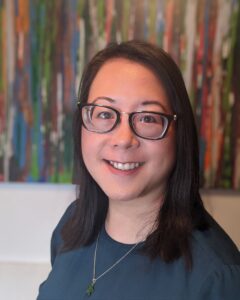
Dr Amy Tan
Dr Amy Tan is a Clinical Associate Professor, University of British Columbia, Faculty of Medicine, an anti-racism scholar-educator and a palliative care and family physician in Victoria, British Columbia.
Declaration of Interests: I have read and understood the BMJ Group policy on declaration of interests and declare the following interests: College of Family Physicians of Canada – Foundation for Advancing Family Medicine Janus Research Grant Anti- Racism Educator and Consultant and Section Editor of Racism & Health at PLOS Global Public Health Journal.
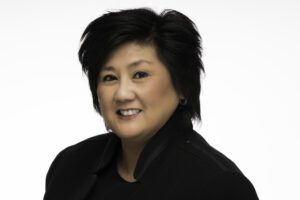
Professor Ivy Oandasan
Ivy Oandasan is a Full Professor with the Department of Family and Community Medicine at the University of Toronto. An active family physician she has been involved in teaching and research since 1997. She was the College of Family Physician of Canada’s (CFPC) DI Rice Awardee in 2012 in recognition of outstanding contributions to teaching, vision and leadership in the discipline of family medicine. Dr. Oandasan’s main scholarship has been in curriculum development, evaluation and research related to competency based medical education, family medicine education and interprofessional education. As the Director of Education at the CFPC she is charged with enhancing undergraduate and postgraduate family medicine education supporting the development of family physicians who can meet societal needs. She has been a mentor for the University of Toronto’s Filipino Association of Medical Students. Believing that health professions education is a health system intervention, Dr.Oandasan’s burning platform remains to foster a generation of competent and caring healthcare professionals who believe in the practice of interprofessional patient-centred quality focused care grounded in values of equity, diversity and inclusion. She grounds her knowledge and practice through her work as a clinician, educator, researcher, administrator, and leader.
Declaration of Interests: I have read and understood the BMJ Group policy on declaration of interests and declare the following interests: none.
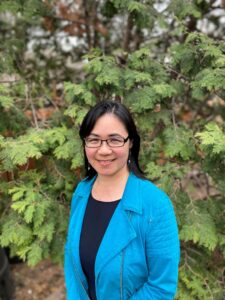
Dr Ming- Ka Chan
Dr. Chan is a Pediatrics Clinician Educator who is privileged to live, work and play on Treaty 1 Territory/Homeland Metis Nation (Winnipeg) on Turtle Island (Canada). Her scholarship focuses on social justice & leadership education. Local leadership roles include EDI and Social Justice Lead, Department of Pediatrics and Child Health; Co-Director, Office of Leadership Education, Rady Faculty of Health Sciences; and Director, Shantou University-University of Manitoba Academic Exchange. Nationally, she co-chairs the Canadian Leadership Institute for Medical Education (CLIME 2.0) Planning Committee. Internationally, she is the current chair of Sanokondu’s Leadership/Governance Team (a multinational community of practice focused on healthcare leadership education for learners www.sanokondu.com) and she is an Associate Editor for BMJ Leader. Clinically, she works as a hospitalist and provides telehealth clinics for Churchill.
Declaration of Interests: I have read and understood the BMJ Group policy on declaration of interests and declare the following interests: Doctors Manitoba Physician Health and Wellness Committee Vice Chair, Planning Chair and Facilitator of the Canadian Association for Medical Education’s (CAME) 3-day 2021 Canadian Leadership Institute for Medical Education (CLIME 2.0), Facilitator and Planning Committee Member CLIME 1.0, Facilitator re resident & faculty leadership with Royal College International, BMJ Leader Associate Editor, grants from Royal College of Physicians and Surgeons of Canada and University of Manitoba, Chair of Sanokondu leadership & governance team (multinational community of practice focused on health leadership education for learners) – www.sanokondu.com, and Editorial Team, Pivotmeded (curated resources to help pivot medical education work online)– https://sites.google.com/afmc-cdn.ca/afmc-pivot-meded.